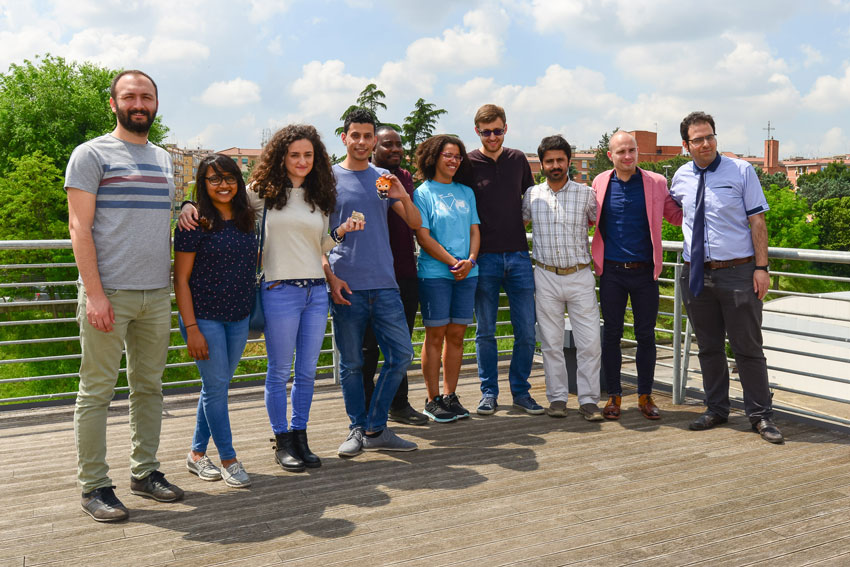Early Stage Researchers (ESRs)
Early Stage Researchers (ESRs)
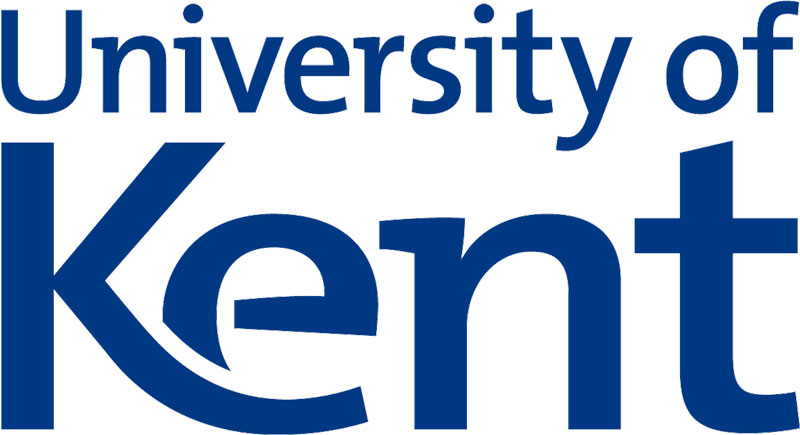
 Elakkiya Ellavarason obtained her Master of Science in Computer Science and Engineering from Denmark Technical University in 2013. She has undertaken an international research project in the area of biometric technology from CASED (Centre for Advanced security Research Darmstadt). Her research work was based on effects of ageing in iris biometrics. She has worked as a model developer and analyst in Danske Bank, Copenhagen and Bangalore respectively. She has experience in developing advanced analytical predictive models. Further, she is a recipient of prestigious H.C. Ørsted scholarship from DTU which is awarded to four most outstanding international students and she has secured first rank in the Department of Computer Science and Engineering during her Bachelor’s Degree.
Elakkiya Ellavarason obtained her Master of Science in Computer Science and Engineering from Denmark Technical University in 2013. She has undertaken an international research project in the area of biometric technology from CASED (Centre for Advanced security Research Darmstadt). Her research work was based on effects of ageing in iris biometrics. She has worked as a model developer and analyst in Danske Bank, Copenhagen and Bangalore respectively. She has experience in developing advanced analytical predictive models. Further, she is a recipient of prestigious H.C. Ørsted scholarship from DTU which is awarded to four most outstanding international students and she has secured first rank in the Department of Computer Science and Engineering during her Bachelor’s Degree.
ESR 1 – Usability Performance Assessment of Mobile Touch-Screen Behavioural Biometrics
 Teodors Eglitis obtained an MSc degree in electronics from Riga Technical University, Riga, Latvia in 2014. His Master’s thesis was entitled ‘Development of techniques for system with palm biometric feature extraction facilities‘. Whilst studying for both, his first degree and MSc, Teodors was employed at the Institute of Electronics and Computer Science (IECS), initially as an intern and later as Electronics Engineer and researcher, where he also did the technical work leading to his Master’s thesis. From June 2016 Teodors worked at the IDIAP Research Institute in Martigny, Switzerland, on a project entitled ‘BIOmetric Watch Activated by Veins (Biowave)’ for Swiss start-up Biowatch, aimed at developing a wrist vein biometric recognition product. Teodors joined the AMBER project at the University of Kent, School of Engineering and Digital Arts, in October 2017 where he will be working on ‘Continuous and Instantaneous Authentication using Mobile Devices’.
Teodors Eglitis obtained an MSc degree in electronics from Riga Technical University, Riga, Latvia in 2014. His Master’s thesis was entitled ‘Development of techniques for system with palm biometric feature extraction facilities‘. Whilst studying for both, his first degree and MSc, Teodors was employed at the Institute of Electronics and Computer Science (IECS), initially as an intern and later as Electronics Engineer and researcher, where he also did the technical work leading to his Master’s thesis. From June 2016 Teodors worked at the IDIAP Research Institute in Martigny, Switzerland, on a project entitled ‘BIOmetric Watch Activated by Veins (Biowave)’ for Swiss start-up Biowatch, aimed at developing a wrist vein biometric recognition product. Teodors joined the AMBER project at the University of Kent, School of Engineering and Digital Arts, in October 2017 where he will be working on ‘Continuous and Instantaneous Authentication using Mobile Devices’.
ESR 2 – Continuous and Instantaneous Authentication using Mobile Devices
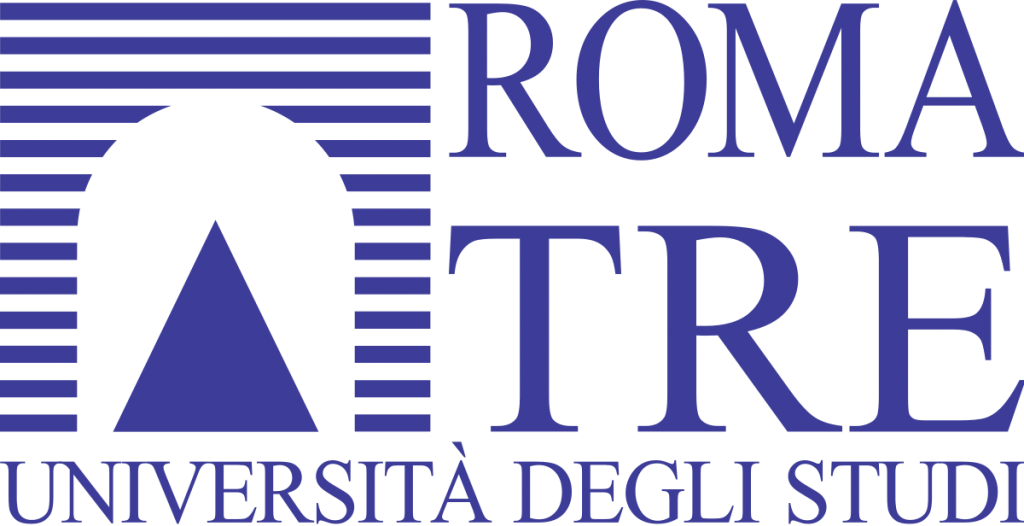
 Ebenezer Okoh received his Master’s (MSc) degree in Information Security from Luleå University of Technology (LTU), Sweden, in 2015. He holds a Bachelor degree in Computer Science from Kwame Nkrumah University of Science and Technology (KNUST) Kumasi, Ghana. He has worked both in the private and public sector as systems, network and database administrator in Ghana. After his Master’s degree, he had the opportunity to work as Teaching Assistant in the Department of Computer Science , Electrical and Space Engineering in Luleå University of Technology in Sweden, primarily at the Information Security lab. During his time as a student and teaching assistant, his research studies and publications were related to biometrics and e-health security, information security and online education. Ebenezer has joined the AMBER project as a PhD student at the Biometric Systems and Multimedia Forensics. Lab at Roma Tre University, Rome.
Ebenezer Okoh received his Master’s (MSc) degree in Information Security from Luleå University of Technology (LTU), Sweden, in 2015. He holds a Bachelor degree in Computer Science from Kwame Nkrumah University of Science and Technology (KNUST) Kumasi, Ghana. He has worked both in the private and public sector as systems, network and database administrator in Ghana. After his Master’s degree, he had the opportunity to work as Teaching Assistant in the Department of Computer Science , Electrical and Space Engineering in Luleå University of Technology in Sweden, primarily at the Information Security lab. During his time as a student and teaching assistant, his research studies and publications were related to biometrics and e-health security, information security and online education. Ebenezer has joined the AMBER project as a PhD student at the Biometric Systems and Multimedia Forensics. Lab at Roma Tre University, Rome.
ESR 3 – Template protection in biometric-based mobile scenarios
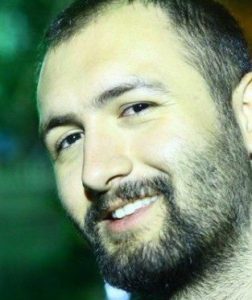 Rıdvan Salih Kuzu received his Bachelor of Science degree in Electrical & Electronics Engineering at Boğaziçi University, İstanbul, Turkey, in August 2010, and received his Master of Science degree in System & Control Engineering with the thesis title: “Authorship Recognition in Online Social Platforms” at Boğaziçi University, İstanbul, Turkey, in June 2017. He has also performed in variety of roles including R&D engineering, consultancy as well as management for private IT and R&D companies since 2010. As an R&D staff, his responsibilities included transforming computational theories into well structured algorithms, technical analysis and proof of concepts as well as organising colloborative studies with international partners under HORIZON 2020 programmes. His current research area is Multimodal Biometry under the supervision of Prof. Patrizio Campisi at Biometric Systems and Multimedia Forensics Lab of the Roma Tre University. His other research interests are signal processing, pattern recognition, machine learning and information retrieval on textual/visual data.
Rıdvan Salih Kuzu received his Bachelor of Science degree in Electrical & Electronics Engineering at Boğaziçi University, İstanbul, Turkey, in August 2010, and received his Master of Science degree in System & Control Engineering with the thesis title: “Authorship Recognition in Online Social Platforms” at Boğaziçi University, İstanbul, Turkey, in June 2017. He has also performed in variety of roles including R&D engineering, consultancy as well as management for private IT and R&D companies since 2010. As an R&D staff, his responsibilities included transforming computational theories into well structured algorithms, technical analysis and proof of concepts as well as organising colloborative studies with international partners under HORIZON 2020 programmes. His current research area is Multimodal Biometry under the supervision of Prof. Patrizio Campisi at Biometric Systems and Multimedia Forensics Lab of the Roma Tre University. His other research interests are signal processing, pattern recognition, machine learning and information retrieval on textual/visual data.
ESR 4 – Multibiometrics architectures and privacy in a mobile environment

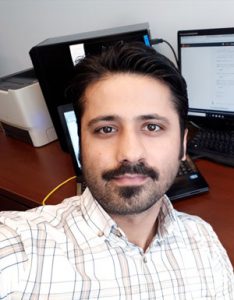 Jalil Nourmohammadi Khiarak received the B.Sc. degree from the non-Profit University of Sabalan, Ardabil, Iran, in 2011, and the M.Sc. degree in Artificial Intelligence from the Faculty of Electrical & Computer Engineering, University Of Tabriz, Tabriz, Iran in 2015. His Master’s thesis was entitled ‘Learning Hierarchical Representations for Video Analysis Using Deep Learning ‘. His research interests are Biometric, Machine Learning, Computer Vision, Supervised learning (SVM, Back propagation, Logistic regression), unsupervised learning (Deep learning such as Auto-Encoders and Convolutional neural networks, PCA, K-mean Clustering), and Neural Networks. During his study, research, and work, he published several conference papers, one ISI journal paper and some submitted papers in different journals of IEEE, Elsevier, Springer, so far and developed a wide range of skills including programming, paper writing, and etc. In December 2017 Jalil joined the Amber project at the Warsaw university of Technology in which he will be working on ‘Countermeasure algorithms against subterfuge in mobile biometric systems’.
Jalil Nourmohammadi Khiarak received the B.Sc. degree from the non-Profit University of Sabalan, Ardabil, Iran, in 2011, and the M.Sc. degree in Artificial Intelligence from the Faculty of Electrical & Computer Engineering, University Of Tabriz, Tabriz, Iran in 2015. His Master’s thesis was entitled ‘Learning Hierarchical Representations for Video Analysis Using Deep Learning ‘. His research interests are Biometric, Machine Learning, Computer Vision, Supervised learning (SVM, Back propagation, Logistic regression), unsupervised learning (Deep learning such as Auto-Encoders and Convolutional neural networks, PCA, K-mean Clustering), and Neural Networks. During his study, research, and work, he published several conference papers, one ISI journal paper and some submitted papers in different journals of IEEE, Elsevier, Springer, so far and developed a wide range of skills including programming, paper writing, and etc. In December 2017 Jalil joined the Amber project at the Warsaw university of Technology in which he will be working on ‘Countermeasure algorithms against subterfuge in mobile biometric systems’.
ESR 5 – Countermeasure algorithms against subterfuge in mobile biometric systems
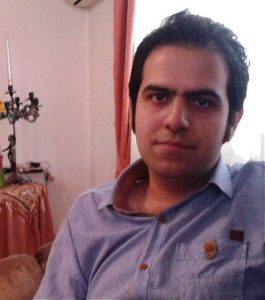 Mohammadreza Azimi received his Bachelor of Science degree in Mechanical Engineering with honors from Babol University of Technology, Babol, Iran (2012), and he obtained his Master of Science degree in Mechanical Engineering from Tarbiat Modares University, Tehran, Iran (2014). His research interests are in the fields of computational sciences and numerical methods. He has authored several ISI journals publications. Mohammadreza has joined the AMBER project as a PhD student in Faculty of Electronics and Information Technology at Warsaw University of Technology, Poland.
Mohammadreza Azimi received his Bachelor of Science degree in Mechanical Engineering with honors from Babol University of Technology, Babol, Iran (2012), and he obtained his Master of Science degree in Mechanical Engineering from Tarbiat Modares University, Tehran, Iran (2014). His research interests are in the fields of computational sciences and numerical methods. He has authored several ISI journals publications. Mohammadreza has joined the AMBER project as a PhD student in Faculty of Electronics and Information Technology at Warsaw University of Technology, Poland.
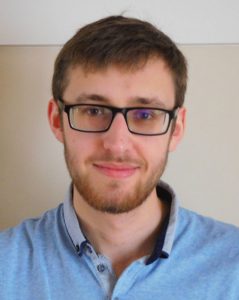 Nicholas Whiskerd has experience in computer science and computational mathematics. In 2017, he graduated from the University of Buckingham with a Bachelor of Science (Honours) in Computing. He received the British Computer Society Prize for best graduating student in the department and the G-Volution Prize for Academic Distinction. He is currently working at the Otto-von-Guericke-University Magdeburg, Advanced Multimedia and Security Lab (AMSL). AMSL is part of the Department for Technical & Operational Information Systems within the Faculty of Computer Science and has undertaken a range of national and international research projects in the areas of biometric technologies, forensics, cryptography, and watermarking and steganography.
Nicholas Whiskerd has experience in computer science and computational mathematics. In 2017, he graduated from the University of Buckingham with a Bachelor of Science (Honours) in Computing. He received the British Computer Society Prize for best graduating student in the department and the G-Volution Prize for Academic Distinction. He is currently working at the Otto-von-Guericke-University Magdeburg, Advanced Multimedia and Security Lab (AMSL). AMSL is part of the Department for Technical & Operational Information Systems within the Faculty of Computer Science and has undertaken a range of national and international research projects in the areas of biometric technologies, forensics, cryptography, and watermarking and steganography.
Salatiel Ezennaya-Gomez holds a Bachelor degree in Telecommunication Engineering from the Polytechnics University of Catalunya and Master’s degrees in Telecommunication Networks for developing countries and Bioengineering and Telemedicine from the University Rey Juan Carlos and Polytechnics University of Madrid in Spain, respectively. After working in industry in the fields of Logistics and Financial markets, she worked for research centres in Spain (European Center for Softcomputing) and Italy (Research Centre E.Piaggio of University of Pisa). Her research studies and publications were related to Intelligent Data Analysis in the field of Neurobiology and Biomedical Signal Processing for Emotion Recognition. She received the best student paper award at the conference IFSA/EUSFLAT 2015 with the resulting paper “Mining Significant Frequent Patterns in Parallel Episodes with a Graded Notion of Synchrony”. She currently is working on privacy data management in mobile biometrics at the Otto-von-Guericke-University Magdeburg, Advanced Multimedia and Security Lab (AMSL).
ESR 8 – User-centric and self-determined privacy management in mobile biometrics

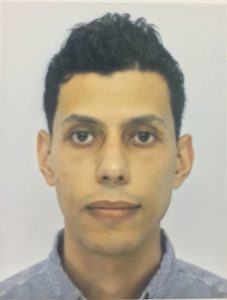 Anas Husseis received his Bachelor degree in Communication Engineering from Yarmouk University, Irbid, Jordan, in January 2012, and obtained his Master degree in Multimedia Networking with the thesis title: “Optimization Method for HDR Images Tone Mapping Operator” at Telecom-Paristech, Paris Saclay University, Paris, France, in September 2017. Prior to his Masters studies he had gained over five years experience working with telecom operators in the field of Digital Services and Network Management to explore the compression, transmission and protection of multimedia content. He is joining the University Group for Identification Technology (GUTI) at University Carlos III of Madrid, where his PhD thesis will investigate and eliminate the vulnerabilities in the use of biometric systems in mobile devices.
Anas Husseis received his Bachelor degree in Communication Engineering from Yarmouk University, Irbid, Jordan, in January 2012, and obtained his Master degree in Multimedia Networking with the thesis title: “Optimization Method for HDR Images Tone Mapping Operator” at Telecom-Paristech, Paris Saclay University, Paris, France, in September 2017. Prior to his Masters studies he had gained over five years experience working with telecom operators in the field of Digital Services and Network Management to explore the compression, transmission and protection of multimedia content. He is joining the University Group for Identification Technology (GUTI) at University Carlos III of Madrid, where his PhD thesis will investigate and eliminate the vulnerabilities in the use of biometric systems in mobile devices.
ESR 9 – Vulnerability assessment in the use of biometrics in unsupervised environments
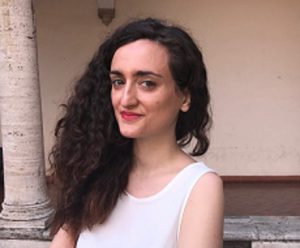 Barbara Corsetti received a Bachelor Degree on Clinical Engineering in 2014 and two years later she obtained a Master degree in Biomedical Engineering.
Barbara Corsetti received a Bachelor Degree on Clinical Engineering in 2014 and two years later she obtained a Master degree in Biomedical Engineering.
During her studies, she got experience in biomedical signals, biomechanics and biofluid dynamics.
On September 2017 she joined the University Group for Identification Technology (GUTI) at University Carlos III of Madrid, where she’s currently doing her PhD within the AMBER project on the evaluation of biometrics systems.
ESR 10 – Traceable and comparable evaluation methodology for biometric systems usability
